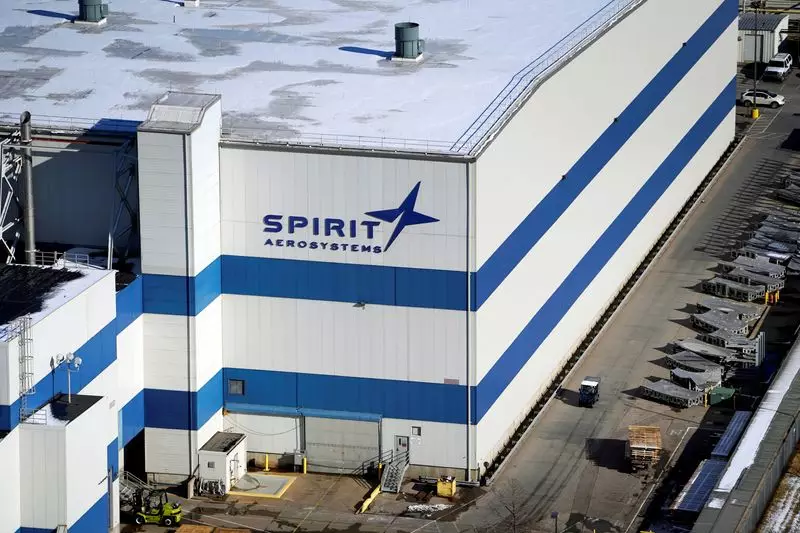The aerospace industry, often characterized by intense competition and high-stakes negotiation, is witnessing a notable shift as key players like Airbus and Boeing navigate their operational landscapes. The recent discussions surrounding Airbus’ potential acquisition of a component of Spirit Aerosystems illuminate not only the challenges inherent to corporate mergers but also the necessity for collaboration amid industry turbulence. This article delves into the nuances of this complicated relationship, including implications for both companies and the broader market.
Airbus, the European aviation giant, is currently engaging in advanced negotiations to take control of several operations from Spirit Aerosystems, a supplier that has been entangled in financial distress. This move appears to be part of a larger strategy to secure the supply chain for Airbus’ A350 and A220 aircraft models. By assuming control of four Spirit facilities, Airbus is not merely expanding its footprint but also attempting to stabilize a critical supplier that has been under immense pressure following a series of operational setbacks.
These negotiations should be understood against the backdrop of an industry on the brink, grappling with the ramifications of a significant supplier’s decline. Spirit, which has seen its financial health deteriorate, serves as an essential conduit for production; its struggles have raised alarms for both Airbus and Boeing. The possible collaboration to manage Spirit’s resources marks a rare instance of competitor alignment, highlighting the shared risks associated with a faltering supplier.
The financial intricacies surrounding Spirit Aerosystems are alarming, as recently disclosed concerns about its ability to meet financial obligations indicate a precarious situation. Spirit’s loss of revenue post-737 MAX issues has led to substantial financial interventions from both Airbus and Boeing, amounting to nearly $457 million. These funds act not only as a lifeline for Spirit but also as a calculated move to safeguard the interests of the two aerospace titans in an industry fraught with operational dependencies.
Airbus CEO Guillaume Faury acknowledged that while negotiations are progressing positively, the integration of Spirit’s operations into Airbus will not come without challenges. Moving from agreement to execution requires substantial diligence, and Faury underscored the arduous pathway ahead. The reality that operational efficiencies must be realized after acquisition underscores the ongoing difficulties faced by both Airbus and Spirit. Essentially, the agreement’s success hinges on Airbus’ ability to not only absorb Spirit’s existing challenges but also improve its operational efficiency moving forward.
Regulatory Challenges and Market Implications
Alongside financial and operational complexities, the intentions for acquisition are likely to encounter regulatory scrutiny, which could slow down the integration process. Oversight from government bodies ensures that such collaborations do not create monopolistic tendencies that might stifle competition. The intricate maneuvering of steering through regulatory frameworks will require strategic foresight on Airbus’ part.
Moreover, the aerospace sector is deeply interconnected; a stumble by one major player can send shockwaves throughout the supply chain. The volatility surrounding Spirit Aerosystems affects not only Airbus but has far-reaching implications for Boeing, its rivals, and the entire aerospace manufacturing ecosystem. The cooperation seen here could symbolize a transformative shift towards enhanced interdependence among competitors in the face of collective adversity.
The ongoing discussions between Airbus and Spirit Aerosystems embody both the intricate challenges of corporate acquisitions and the urgent necessity for cooperative strategies within the aerospace sector. As Airbus navigates this delicate process, it must contend with the financial realities of Spirit while simultaneously safeguarding its production lines from external shocks.
Ultimately, this situation epitomizes a wider trend in which industry giants may increasingly find themselves collaborating with rivals to stabilize their supply chains and maintain operational continuity. As Airbus works toward finalizing this acquisition, the outcomes could define new norms of collaboration in an industry long divided by fierce competition. Thus, the fate of Spirit Aerosystems might become a pivotal touchstone in the evolving narrative of aerospace manufacturing.

